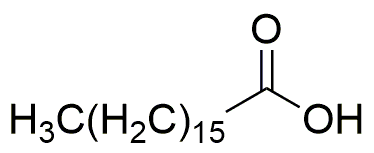Heptadecanoic acid is widely utilized in research focused on:
- Food Industry: This fatty acid is used as a flavoring agent and preservative in various food products, enhancing taste while maintaining freshness.
- Cosmetics: It serves as an emollient and thickening agent in creams and lotions, providing a smooth texture and moisturizing benefits for skin care products.
- Pharmaceuticals: Heptadecanoic acid is explored for its potential therapeutic properties, particularly in formulations aimed at improving lipid profiles and metabolic health.
- Biotechnology: It is utilized in the production of biodiesel and biofuels, offering a renewable energy source that can help reduce carbon emissions compared to fossil fuels.
- Research Applications: This compound is often used in studies related to fatty acid metabolism, helping researchers understand its role in human health and disease.
Informations générales
Propriétés
Sécurité et réglementation
Applications
Heptadecanoic acid is widely utilized in research focused on:
- Food Industry: This fatty acid is used as a flavoring agent and preservative in various food products, enhancing taste while maintaining freshness.
- Cosmetics: It serves as an emollient and thickening agent in creams and lotions, providing a smooth texture and moisturizing benefits for skin care products.
- Pharmaceuticals: Heptadecanoic acid is explored for its potential therapeutic properties, particularly in formulations aimed at improving lipid profiles and metabolic health.
- Biotechnology: It is utilized in the production of biodiesel and biofuels, offering a renewable energy source that can help reduce carbon emissions compared to fossil fuels.
- Research Applications: This compound is often used in studies related to fatty acid metabolism, helping researchers understand its role in human health and disease.
Documents
Fiches de données de sécurité (FDS)
La FDS fournit des informations de sécurité complètes sur la manipulation, le stockage et l’élimination du produit.
Spécifications du produit (PS)
Le PS fournit une description complète des propriétés du produit, notamment sa composition chimique, son état physique, sa pureté et les exigences de stockage. Il détaille également les plages de qualité acceptables et les applications prévues du produit.
Certificats d'analyse (COA)
Recherchez des certificats d'analyse (COA) en saisissant le numéro de lot du produit. Les numéros de lot et de lot se trouvent sur l'étiquette d'un produit, après les mots « Lot » ou « Lot de fabrication ».
Numéro de catalogue
Numéro de lot/série
Certificats d'origine (COO)
Ce certificat d'exploitation confirme le pays dans lequel le produit a été fabriqué, et détaille également les matériaux et composants utilisés et s'il est issu de sources naturelles, synthétiques ou autres sources spécifiques. Ce certificat peut être requis pour les douanes, le commerce et la conformité réglementaire.
Numéro de catalogue
Numéro de lot/série
Fiches de données de sécurité (FDS)
La FDS fournit des informations de sécurité complètes sur la manipulation, le stockage et l’élimination du produit.
DownloadSpécifications du produit (PS)
Le PS fournit une description complète des propriétés du produit, notamment sa composition chimique, son état physique, sa pureté et les exigences de stockage. Il détaille également les plages de qualité acceptables et les applications prévues du produit.
DownloadCertificats d'analyse (COA)
Recherchez des certificats d'analyse (COA) en saisissant le numéro de lot du produit. Les numéros de lot et de lot se trouvent sur l'étiquette d'un produit, après les mots « Lot » ou « Lot de fabrication ».
Numéro de catalogue
Numéro de lot/série
Certificats d'origine (COO)
Ce certificat d'exploitation confirme le pays dans lequel le produit a été fabriqué, et détaille également les matériaux et composants utilisés et s'il est issu de sources naturelles, synthétiques ou autres sources spécifiques. Ce certificat peut être requis pour les douanes, le commerce et la conformité réglementaire.

